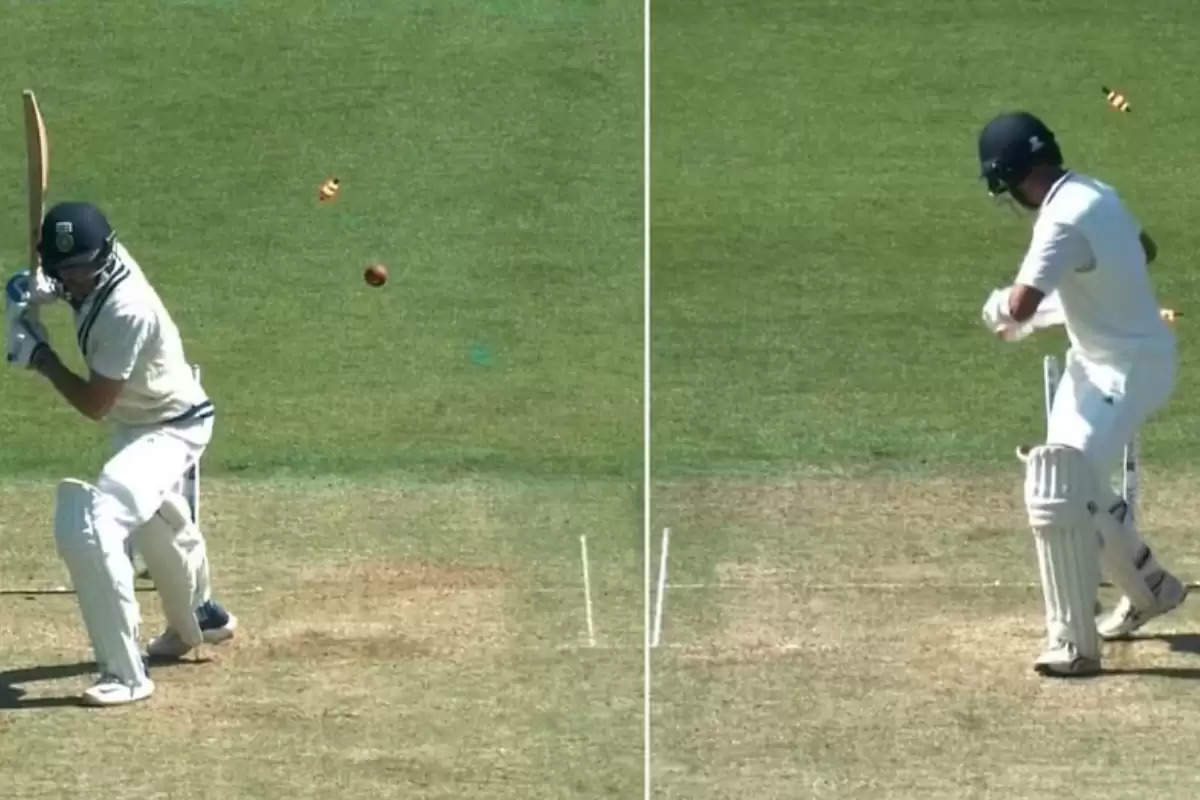Shubman Gill and Cheteshwar Pujara struggle to exit in the WTC Final.

Two of India's most important batsmen perished without making a stroke, shouldering their sticks as they watched the ball curve back and hit the stumps. The shame of failing to shield the ball with your only available weapon makes it the most mentally taxing path to perdition, ripped until your next success. You could have been beat, you could have been nicked, but at least you played a stroke, so you can console yourself with that.
The victims' horrified agony perfectly conveys the narrative. Shubman Gill was unable to respond after Scott Boland's untimely departure left him heartbroken and in shambles. No indications of an irresponsible stroke were present. He had good length judgement and was moving fluidly. Going behind the queue and hitting the appropriate ball with the appropriate stroke. With an exquisite punch through extra cover off Pat Cummins, Gill had unzipped his innings. Later, for another four, he would pull him through long-on. Prior to making an unwatchable mistake in judgement, there were two delicious strokes. It wasn't a cunning setup or a hoops devil, just a standard in-ducker. Instead, it was a made-up scenario.
Only four balls had been bowled to Gill by Boland. The first three, which were all angled in and without seaming in any direction, were fiercely defended on the front foot. Smelling a trap, Gill. The following ball would have bent away, his instinct would have warned him. Yet, Boland's most lethal talent is the one that snakes back in from a good distance; he is not a big advocate of out-swings. So it ended up being. Gill stepped out on his front foot. Suddenly, frozen by the inward angle, it came to a standstill. Test openers are faced with an existential choice: to leave or not to leave. He raised his arms, uncertainly and apprehensively. He may have placed his trust in the deck's springiness because it is more springy than most other surfaces in England.
Anything he had assumed was untrue. Given that it was only his third innings in England, it may happen to inexperienced hitters there. You are almost mentally compelled to take the leave because you have heard so much about its benefits. Without a doubt, it is a must for success in any situation; in fact, it is the second most frequently used (non-swing) in cricket, behind the forward defensive. Describe it as the "phantom stroke."As one of the greatest leavers in Test cricket, Geoff Boycott, would say, "Let him (bowler) see you refusing to drive so that he is encouraged to land the ball a foot closer to you," it has the potential to change the course of the match. Bang follows. Put your foot forward and kick the ball away. It can be used as both an offensive and a defence weapon when handled by a skilled vendor. That could interfere with the bowler's thoughts before the bat even touches the ball.Former England fast Simon Jones once said, "If a batsman is leaving the ball well, you can see their game is in good order and for me, I thought if they were leaving me easy then they were imposing themselves on me as well."
Perhaps Cummins's tendency to make one ball hold the line after angling in the past frightened Pujara. In the preceding over, Boland had produced a similar delivery. Perhaps he was replaying it in his head. He was almost persuaded by the ball's longer length that it would fly away after landing. Instead, it veered back in, sparingly at first, but just enough to catch him off guard. Instead of being angry, he simply swung the bat and hurried back to the privacy of the dressing room. Before the error, he was also batting confidently and fluidly, just like Gill.
Should Pujara have continued to play from behind and protect it, as he so frequently does in similar circumstances? Yet, he made a point of moving forward to most of the balls in this innings. Perhaps it was to avoid the half-prod position he frequently assumes. But in this case, it backfired because there was some predetermination because he left a ball that he could have easily protected.
Then pitches in England function like this. They mentally manipulate you, make you think, and cause illusions to appear. Even in the thoughts of someone who regularly scores a tonne of runs for their county in cricket, as well as in the thoughts of the most gifted young batter. It's not the simplest of strokes; it requires discretion, caution, reflexes, and second-guessing. But, to pass away without suffering a stroke is a pain for which the game offers little analogues. not even your own. You are consumed by remorse like a fire.
.png)